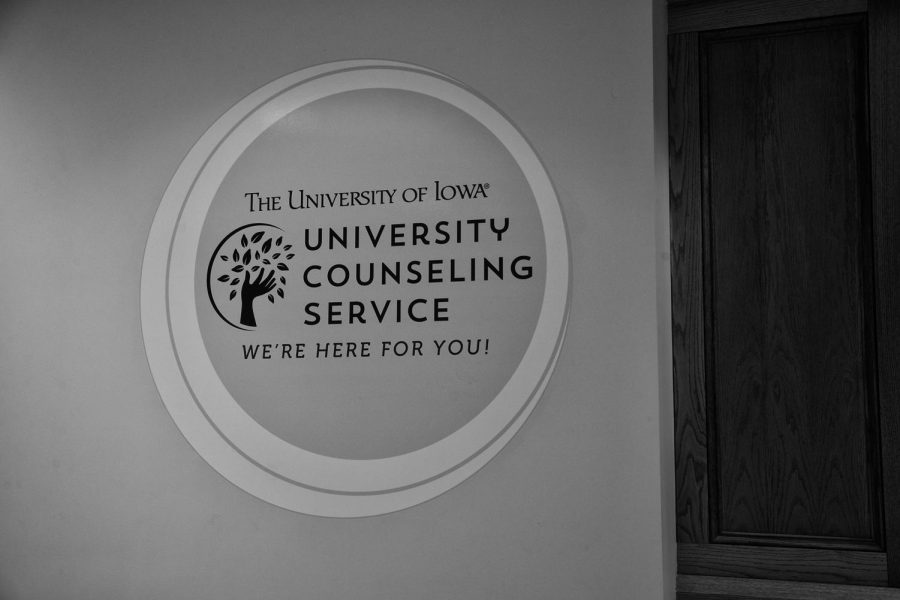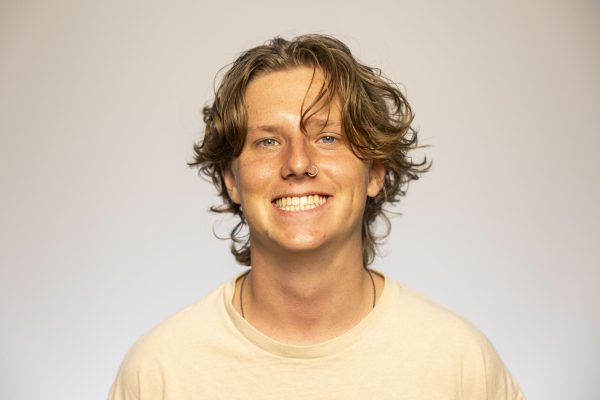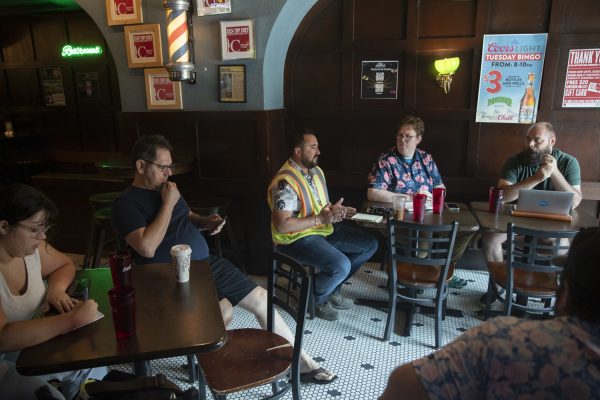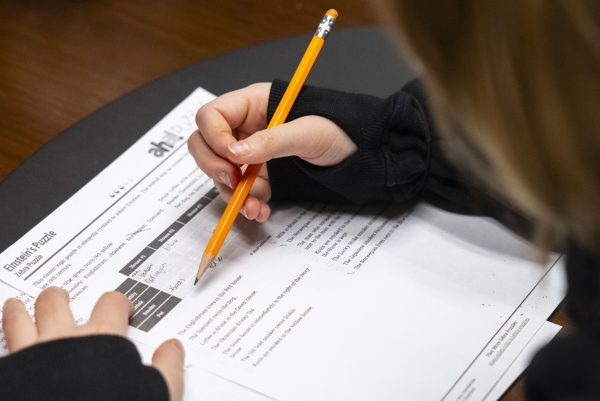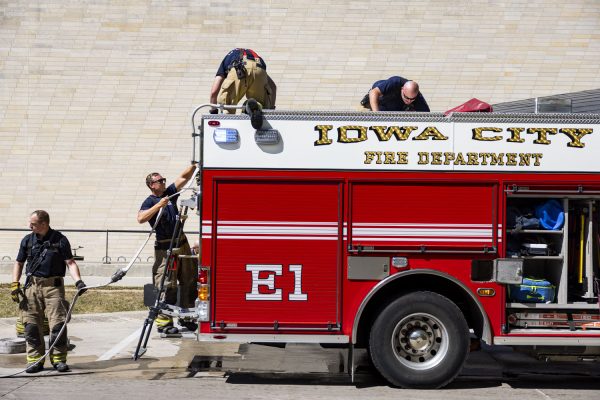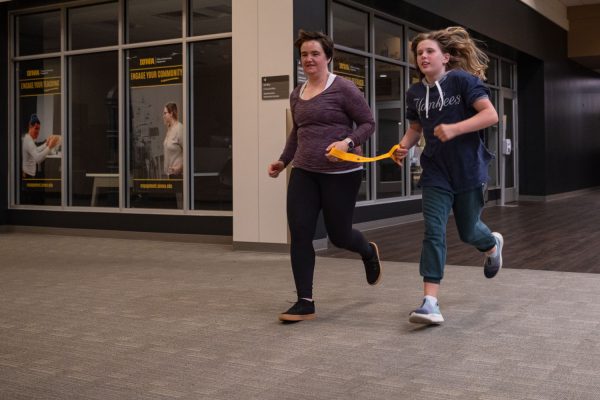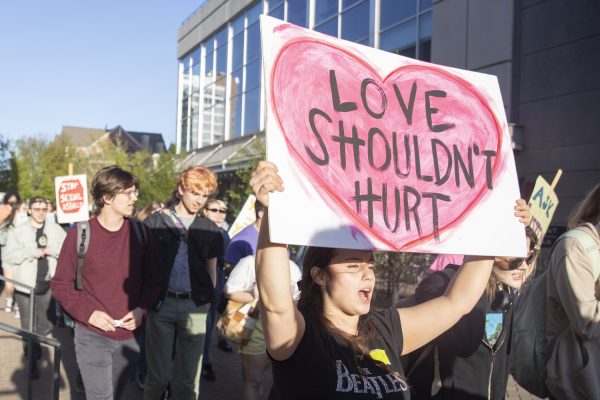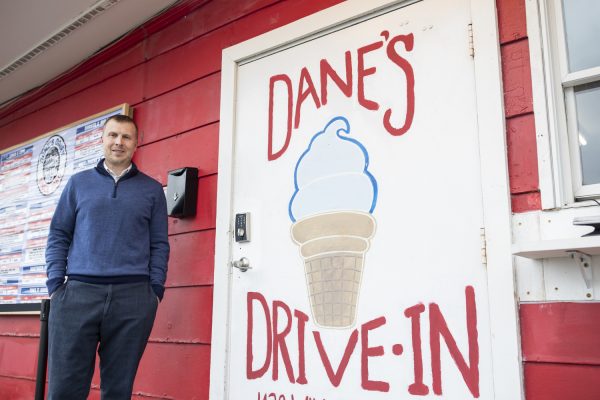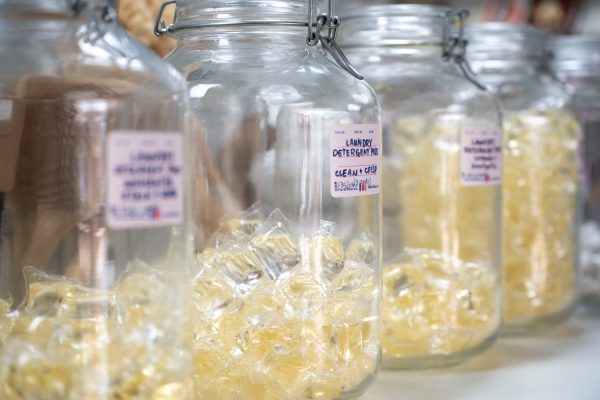Johnson County mental health providers reaching individual therapy capacities
As the need for mental health resources increases, many local mental health professionals are seeing more demand than their staff can offer.
University of Iowa Counseling Services is seen at the Old Capitol Mall on Wednesday Feb. 22, 2023.
March 5, 2023
Johnson County mental health professionals are experiencing more client demand than their staff can handle, as the county’s rising need for mental health resources follows the national trend.
According to the American Psychological Association’s 2022 COVID-19 Practitioner Impact Survey, 60 percent of the 2,295 licensed psychologists surveyed reported having no openings for new patients, and four of every 10 maintained a waitlist.
At United Action for Youth, a nonprofit organization offering various counseling and youth development programs to support teens and families in the county, the wait for formal therapy can take months.
United Action for Youth Executive Director Talia Meidlinger said at a Feb. 7 Iowa City City Council meeting that the organization had 40 people on its therapy waitlist, with an average one to three-month waiting period.
Meidlinger said in an interview a week later with The Daily Iowan that the waitlist for therapy services was currently at 60 people.
“We’ve worked really hard to get our name out there in the last five years, and the waitlist has ebbed and flowed. But post-pandemic, we’ve just pretty consistently seen that waitlist,” Meidlinger said. “This is the highest it’s been in a long time.”
Meidlinger said that while United Action for Youth wants to get people off its waitlist, this would require hiring additional staff.
With around 30 people on its staff, the nonprofit provided 5,016 billable therapy sessions to 402 clients during the previous fiscal year. It also offered hundreds of crisis counseling sessions and over 1,400 contacts for crisis intervention and mediation services.
“We also have a small staff, and it’s kind of asking them to do more with less,” Meidlinger said.
Despite not offering traditional therapy, CommUnity Crisis Services has also observed an increase in calls. Sarah Nelson, CommUnity Crisis Services’ chief executive officer, told the City Council during the Feb. 7 meeting that the number of Mobile Crisis Response calls increased by 35 percent compared to the same time last year.
Fifty-four percent of those calls come from Iowa City Community School District students, a trend Youth-Crisis Coordinator Parth Patel partly attributes to the launch of his role in 2022. Patel said that from January 2022 to January 2023, Mobile Crisis Response received 325 youth contacts.
While Patel said he sometimes received assistance from other full-time crisis counselors, CommUnity Crisis Services hired a second youth-crisis coordinator to help manage the influx of youth-specific calls.
CommUnity’s services don’t include therapy, he said, but counselors may call clinics to check for available slots as part of the follow-up process. CommUnity staff will routinely check in after receiving a Mobile Crisis Call and, with permission, will gather information from a student’s guardian to share recommendations for different resources.
But not all mental health services in the Iowa City and Johnson County area are seeing a rise in clients.
Holly Davis, the clinical director of University Counseling Services, said she has seen a stable number of individuals using the university’s clinical services.
During the fall 2022 semester, University Counseling Services reported 1,121 individuals for clinical services, Davis said — a slight decrease from the year before.
“I wish I could offer more of them,” Davis said. “If we had more therapists, we could offer more per day. But it’s a first call, first serve kind of thing.”
University Counseling Services offers several resources beyond one-on-one therapy appointments, including a 24/7 support and crisis line, workshops for those experiencing anxiety and depression, and several support groups.
While Davis said waitlists for individual therapy can seem limiting, she said every person is different and may take interest in other mental health services.
“It’s as essential as oxygen, in my mind, “ Davis said. “What I think is important for us to keep in mind is that everyone deserves access to health care, but not everyone needs the same health care. I think we need to shift away from this idea that mental health care is only one-on-one therapy.”



